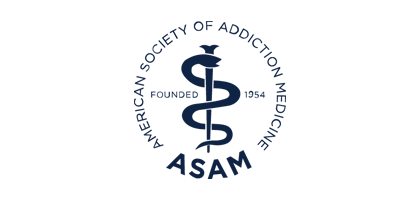Blog
What is Recovery?
Addiction medicine has long possessed reliable instruments for diagnosing substance abuse disorders (DSM) and for assessing clients’ medical, psychological, social, legal, employment, and alcohol/drug problems (ASI). However, there has not been a way of measuring the opposite end of the problem spectrum--recovery. This changed with the November publication of the results of the NIH-funded “What Is Recovery?” study in the Journal of Studies on Alcohol and Drugs. The study provides an empirically-derived definition of recovery based on how it is experienced by those who actually live it.
To uncover the definition of recovery, intensive qualitative and quantitative research was done, culminating in an online survey that was completed by 9,341 people from different pathways to recovery. The pathways included treatment, 12-step groups, non-12-step groups, medication-assisted recovery and natural recovery (no treatment, no support groups). The study identified 39 recovery elements that make up the definition of recovery. The elements are grouped into five areas: abstinence in recovery, essentials of recovery, enriched recovery, spirituality of recovery and uncommon elements of recovery.There are myriad ways that the recovery elements can be used. Of special relevance to addictions service providers, the elements represent specific topics that can be introduced during process groups to help clients prepare for a life in recovery. The elements can be useful in evaluating chronic care models such as recovery-oriented systems of care, akin to the way the Treatment Services Review (TSR) identifies services received during treatment. The elements can be discussed with family members to help them understand what they can expect when their loved ones get into recovery. The study results also will be useful in reducing the stigma that is associated with addiction, because the recovery definition clearly demonstrates the many positive “ways of being” that define recovery. Here are a few examples of the elements of recovery:
Recovery is …
… being honest with myself
… being able to enjoy life without drinking or using drugs like I used to
… living a life that contributes to society, to your family or to your betterment
… being the kind of person that people can count on
… about giving back
… striving to be consistent with my beliefs and values in activities that take up the major part of my time and energy.
For the full list of recovery elements, readers should go to the “What Is Recovery?” study website, http://whatisrecovery.org/.
Kaskutas, L. A., Borkman, T. J., Laudet, A., Ritter, L. A., Witbrodt, J., Subbaraman, M., Stunz, A., & Bond, J. (November 2014). Elements that define recovery: The experiential perspective. Journal of Studies on Alcohol and Drugs, 75(6), 999-1010.http://www.jsad.com/doi/abs/10.15288/jsad.2014.75.999
Reprinted with permission from Alcohol Research Documentation, Inc., publisher of the Journal of Studies on Alcohol and Drugs.
The author is a Senior Scientist at the Alcohol Research Group in Emeryville, CA that is part of the Oakland-based Public Health Institute. She also is an Associate Adjunct Professor in the School of Public Health at the University of California Berkeley. Dr. Kaskutas is a recipient of the prestigious Young Investigators Award from RSA as well as the R. Brinkley Smithers Distinguished Researcher Award from ASAM. Her work has focused on peer-oriented groups such as Alcoholics Anonymous, and on the role of social networks in the maintenance and resolution of problem drinking. Her most recently completed NIH project tested a 12-step facilitation intervention she developed, called MAAEZ (Making AA Easier), which focuses on helping individuals to connect with the individuals they will encounter at AA and other 12-step groups. The MAAEZ manual is available at no cost from the author (lkaskutas@arg.org).

